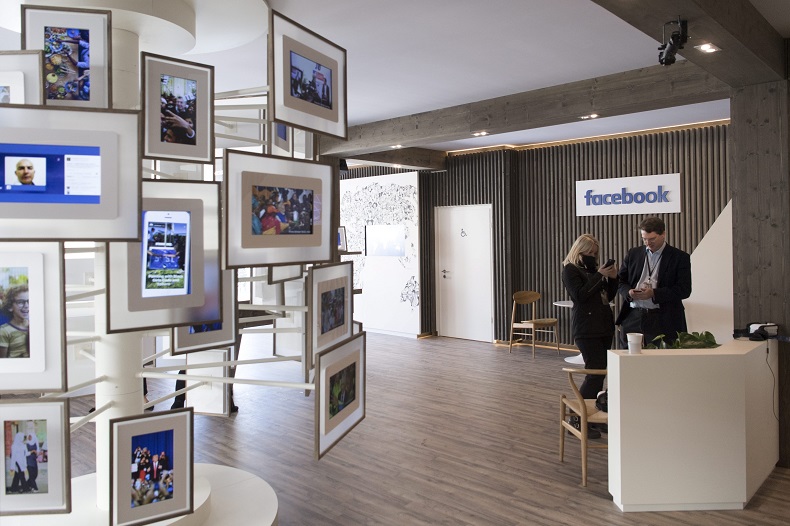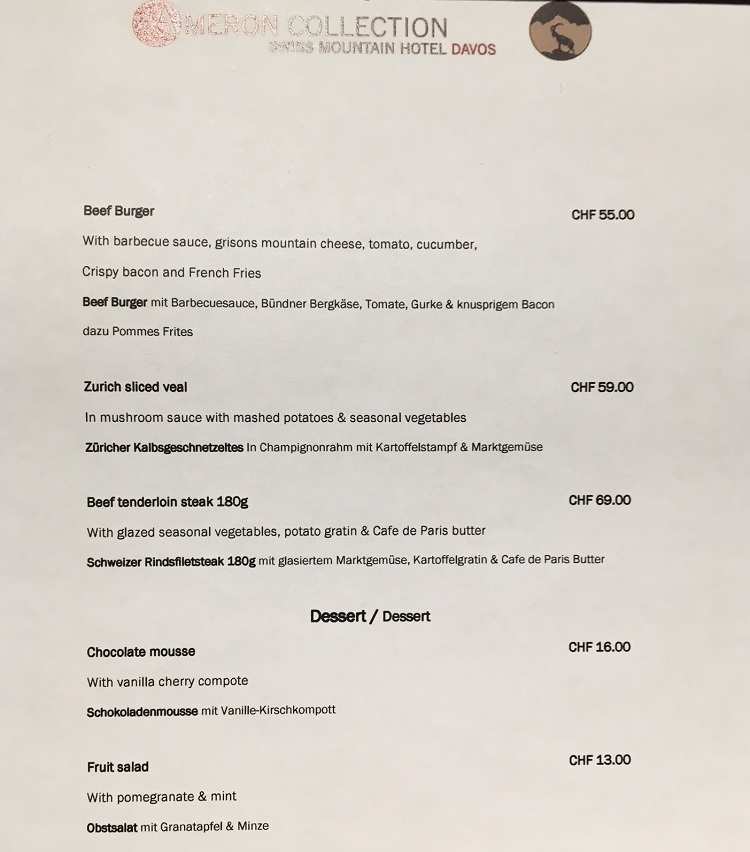The town of Davos, Switzerland is — for about 50 weeks of the year — a pleasant ski village nestled in the country’s famous Alps.

It’s not the cheapest place for a family vacation, but plenty of Swiss nationals and foreign tourists flock there regardless, willing to pay the somewhat premium prices that are typical of ski resort towns like Quebec’s Mont Tremblant or B.C.’s Whistler.
But for about two weeks each January, Davos morphs into a playground for the rich, famous and powerful. The World Economic Forum (WEF) brings the entire world to the town, and the town’s economy shifts in response.
Suddenly, even the most basic hotel room will cost you over US$500 a night — if you’re very lucky and can even find a hotel room.
The local church becomes a pop-up “sanctuary” for business leaders and political elites, run for the last several years by online payments firm Tradeshift. Nearby, entire buildings spring from the earth near the main conference centre, with glowing signs telling visitors that the likes of Facebook or Microsoft have set up shop.
Local lingerie store Blue Lemon has been cleared of every lacy underthing and is now the temporary home of U.S.-based cloud computing company Salesforce. They’ve been heading to Davos since 2012.
“For the third year in a row, Salesforce will be hosting a kids coding event during Davos called Davos Codes with 50 local Davos middle-school students,” said a company spokesperson.
“Salesforce will also use the rented space to host other meetings and events throughout the week.”
The company would not disclose how much it pays to rent the store every year, which is typical of the firms that travel to Davos. But the cost to borrow (or even build) a temporary space in the town during the forum can reportedly run between US$25,000 to as much as US$500,000.
The restaurants and cafes around or in the convention centre that don’t lend their spaces to successful start-ups or major multinationals will often inflate their prices to match the immense spending power that the WEF attracts.
In 2015, NBC dubbed Davos “home of the US$43 hotdog.” A hamburger platter at the hotel where Prime Minister Justin Trudeau is staying will set you back C$75. A serving of chocolate mousse? Nearly C$21.

Get breaking National news
Conservative MP Michelle Rempel, who is visiting the town this week on her own dime, tweeted on Tuesday afternoon that she’d found a creative solution to the exorbitant prices.
Samuel Rosenast, head of communications for the local tourism body Destination Davos Klosters, said the astronomical prices don’t affect locals and tourists who stick to the ski hills and outskirts.
“The locals know they live in a tourist destination and they know how important the WEF is for Davos as a tourist destination,” Rosenast said.
“The prices in the mountain restaurants don’t change during the WEF. The problem is that most people believe that it’s just not possible to come to Davos during the WEF as a ‘normal’ winter tourist … they think Davos is kind of a fortress and unreachable. In fact, it may be the best time for skiing or snowboarding. We had a lot of snow and the slopes are empty.”
WATCH: Unpacking the politics of negotiating NAFTA and mingling in Davos

The WEF contributes 50 million Swiss francs (about C$65 million) to the local economy each year, he noted. For all of Switzerland, it’s near 80 million.
The people actually attending the World Economic Forum and the endless array of parties and events are treated to much of their food and drink by their various hosts.
But barring a special invitation like the one extended to heads of state, they pay a hefty price for initial admission to the elite gathering. The annual membership fee, which you must pay in order to buy a ticket to Davos, costs nearly C$65,000. Then the ticket itself is another C$23,300.
Securing the world’s elite
With so many high-profile targets in one place, security in Davos is also incredibly tight. It’s even tighter when a U.S. president is scheduled to attend — as Donald Trump is set to do later this week.
The Swiss government has estimated the public cost of the precautions at around nine million francs (C$11.6 million).
In addition to street patrols by soldiers, it’s not unusual to spot a sniper on a rooftop and there are regular security checkpoints at various venues and on transport routes.
Cars, bags and suitcases are subject to search. The congress centre itself does become a fortress, with different-coloured badges giving attendees different levels of access inside, all controlled through checkpoints.
READ MORE: The 1% get richer, but experts are split whether that’s good or bad
The airspace around the town is also tightly controlled between Jan. 22 and 27, with no access for paragliders, hang gliders, model helicopters, model planes or drones. Entering the airspace over the town without a special permit is strictly prohibited.



















Comments